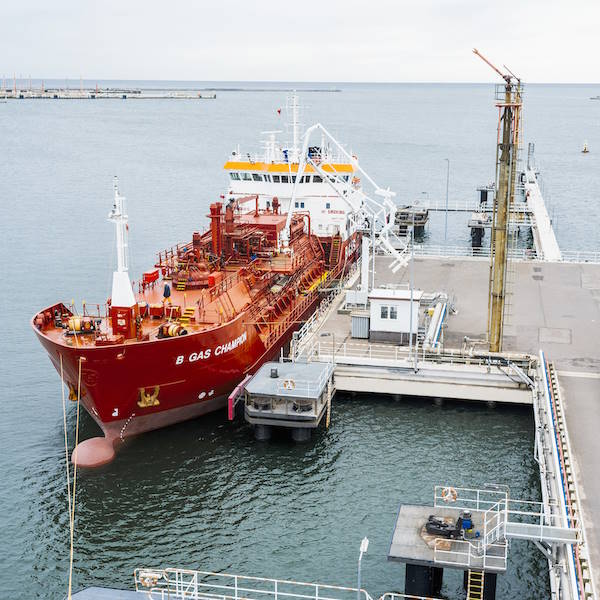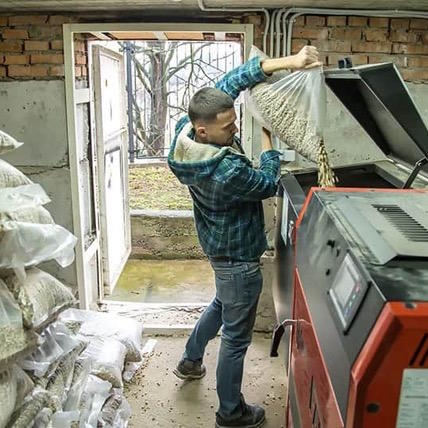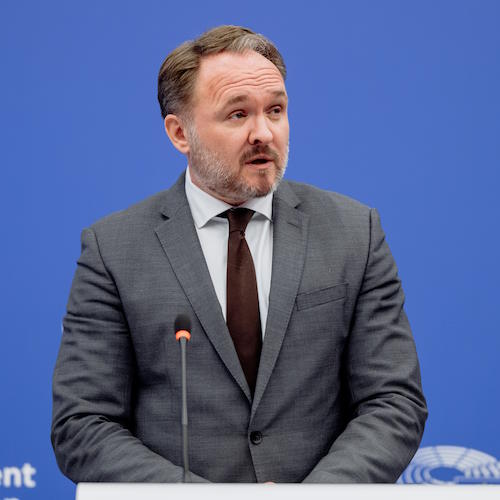European People's Party on the car industry
20.12.2024
The European Parliament elections in June signal a shift in the political discourse on the energy transition from an ideological approach to a slightly more pragmatic one. This can be noted above all among the largest faction of Parliament — the European People's Party (EPP), whose members in Poland are the Civic Platform and the Polish People's Party. One of the signs of change is the manifesto “Securing the Competitiveness of the European Automotive Industry” published on 11 December.

In the document Securing the Competitiveness of the European Automotive Industry dedicated to the competitiveness of the European automotive industry, the EPP presents to the European Commission proposals for solutions for this important sector of the economy. It provides 13.8 million jobs and generates 7% of the European Union's GDP.
However, the automotive industry in Europe is currently facing a number of challenges, including - perhaps above all - increasing competition from subsidised Chinese manufacturers, high energy costs or unrealistic climate ambitions. In its document, the EPP states that EU climate policy should be based on technological neutrality, that is, equal opportunities for different technological solutions that make it possible to pursue the goal of neutrality. The EPP's position is very categorical - among the key demands were the correction of the ban on the sale of new cars with internal combustion engines (ICE) planned for 2035 and the extension of the exception provided for the so-called e-fuels to other advanced biofuels, including BioLPG. In their case, the so-called greenhouse gas emission adjustment mechanism would be used in the calculation of emissivity (carbon correction factor).
The report points to the need to accelerate the revision of Regulation 2019/631 (on CO emission standards)2 for passenger cars) from 2026 to 2025, which would give greater regulatory stability for the automotive and fuel sectors. The EPP also proposes to implement a Vehicle Life Cycle Assessment (LCA) methodology for assessing the emissivity of vehicles, taking into account the impact of emissions at every stage — from production to disposal. Such a tool would make it possible to compare the emissivity of LPG production with the production of electricity or batteries for electric cars. The EPP document was widely accepted by the producer community, including the ACEA trade association:

The EPP's call to address the disproportionate costs of low demand for electric vehicles is an important expression of understanding the difficulties we face as an industry. Time is running out to cover the costs of adaptation by 2025 - this is not an exaggeration. Producers are deciding today whether to set up reserves for penalties, limit production or buy allowances from non-EU producers to meet the requirements. These decisions are irreversible and must be made before the end of the year.
In the context of the challenges facing the automotive industry, we invite you to familiarize yourself with the latest report of the Polish Automotive Industry Association, which this year is devoted primarily to answering the question: in which direction the European Union's policy is heading and whether, in the coming year, European manufacturers will succeed in reducing the carbon dioxide emissions of the fleet registered in the European Union by 15% as one of the next steps on the way to achieving the objectives of the Green Deal and Fit For 55 - total reduction of CO emissions2 from passenger cars and vans from 2035.
The December EPP position opens up space for discussion on several key issues:
- Technological neutrality. Regulation 2023/851 on CO emission standards2 for new passenger cars assumes an arbitrary choice of technology (EV) as the only technology allowed for sale after 2035. The EPP calls for a revision of this approach and the admission of combustion cars to the market, provided that the criteria for climate-neutral fuels are met.
- Climate-neutral fuels. The EPP proposes to extend the definition of carbon-neutral fuels beyond the so-called e-fuels, and to include renewable fuels in this category. This group could also include renewable liquefied gas (BioLPG and dimethyl ether), which would accelerate the commercialization of this fuel in Europe as greener than traditional transport liquid fuels.
- Accelerating the review of the CO Emission Standards Regulation2 for new passenger cars. The launch of a review of the progress of the development of electric car markets would allow for faster strategic decisions, which would give car manufacturers a longer adjustment period in case of expected regulatory changes.
- Re-evaluation of the objectives of electrification of the transport vehicle fleet. On the impracticability of electrification of freight transport in the perspective of 2040 repeatedly wrote the Union of Employers Transport and Logistics Poland. A revision of Regulation 2024/1610 with regard to the tightening of CO2 emission standards for new heavy-duty vehicles would offer the market the opportunity to realistically decarbonise using low-carbon fuels, notably LNG and BioLNG.
- Innovation and research. The EPP calls for increased spending on research and development, which for our industry could translate into support for the development of technological paths for the production of renewable fuels and their commercialization. Funds in this area could also contribute to strengthening the position of domestic component producers in the automotive industry in the face of the growing threat from outside the Union, in particular from Chinese producers.
The EPP report is a very important declaration of intent by the largest group in the European Parliament. A declaration that includes the promise of a more thoughtful and sustainable climate policy, taking into account the competitiveness of industry. The LPG sector, which is an important element of the Polish fuel market and one of the early engines of energy transformation in transport on the Polish market. The Polish Liquefied Gas Organization hopes that the new term of office of Parliament and the European Commission will support the decarbonisation strategy, which takes into account the potential of renewable gases as a transitional fuel and long-term element of the energy mix.




